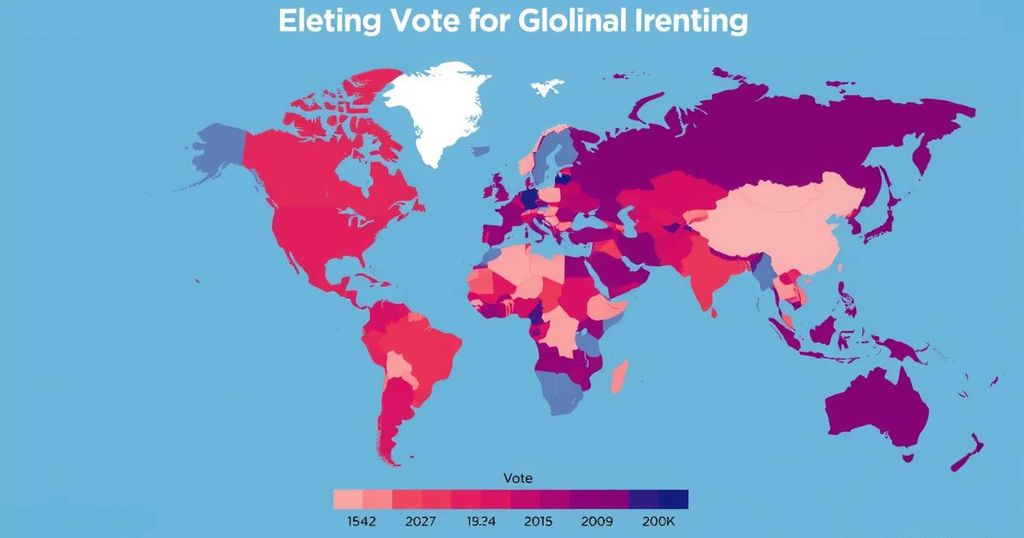World news
2024 ELECTIONS, ASIA, BHARATIYA JANATA, BROAD FRONT, EBRAHIM RAISI, ELECTIONS, EU, EUROPEAN UNION, INDONESIA, IRAN, KAGAME, KAI, MIDDLE EAST, MIDDLE EAST TENSIONS, PACIFIC, PAUL KAGAME, PRESIDENTIAL ELECTION, SOUTH AMERICA, TU, URUGUAY, VOTER TURNOUT, YAMANDU ORSI
David O'Sullivan
0 Comments
Global Voting Trends and Results in 2024 Elections
In 2024, elections in over 70 countries involved around four billion people, marking significant global participation. Key outcomes included Narendra Modi’s BJP failing to secure a majority in India and Donald Trump winning in the U.S. Election turnouts varied, with Rwanda at 98.2% and Tunisia at 28.8%. The political landscape saw both incumbents retaining power through coalitions and new leaders emerging in several countries, emphasizing changing dynamics in global governance.
In 2024, elections were held in over 70 countries, with participation from approximately four billion people, reflecting nearly half of the world’s population. Notably, the European Union parliamentary elections involved 27 member states. Voter turnout averaged 61 percent globally, with Rwanda witnessing the highest at 98.2 percent and Tunisia the lowest at 28.8 percent. Leaders in several countries, including Narendra Modi in India and Donald Trump in the United States, faced challenges in securing majorities. Remarkably, India conducted the world’s largest democratic exercise with 637.4 million voters over six weeks, while incumbent leaders like Cyril Ramaphosa in South Africa had to form coalitions to maintain their grip on power. In significant political shifts, countries such as Botswana and Mexico saw new leadership emerge, including Claudia Sheinbaum as Mexico’s first female president.
The elections of 2024 marked a significant moment in global politics, showcasing varying levels of voter engagement and political stability across nations. The political landscape was characterized by a mix of incumbents retaining power amid reduced majorities and unexpected victories for opposing forces. Countries like India and the United States highlighted the complexities of modern electoral dynamics, where voter sentiment and governance effectiveness collide. In nations like Tunisia and Iran, the implications of voter turnout reflected broader sociopolitical issues impacting democratic processes.
The global electoral landscape in 2024 was marked by substantial voter engagement across numerous nations, with diverse outcomes that shaped governmental structures. While some incumbent leaders held onto power, many faced growing challenges and the necessity of coalition-building. New leadership in countries like Mexico and Botswana indicates shifting political tides, reflecting voter priorities and aspirations for change. The significant electoral events underscore the dynamic nature of governance and democracy worldwide, suggesting ongoing developments in the political arena.
Original Source: www.aljazeera.com




Post Comment